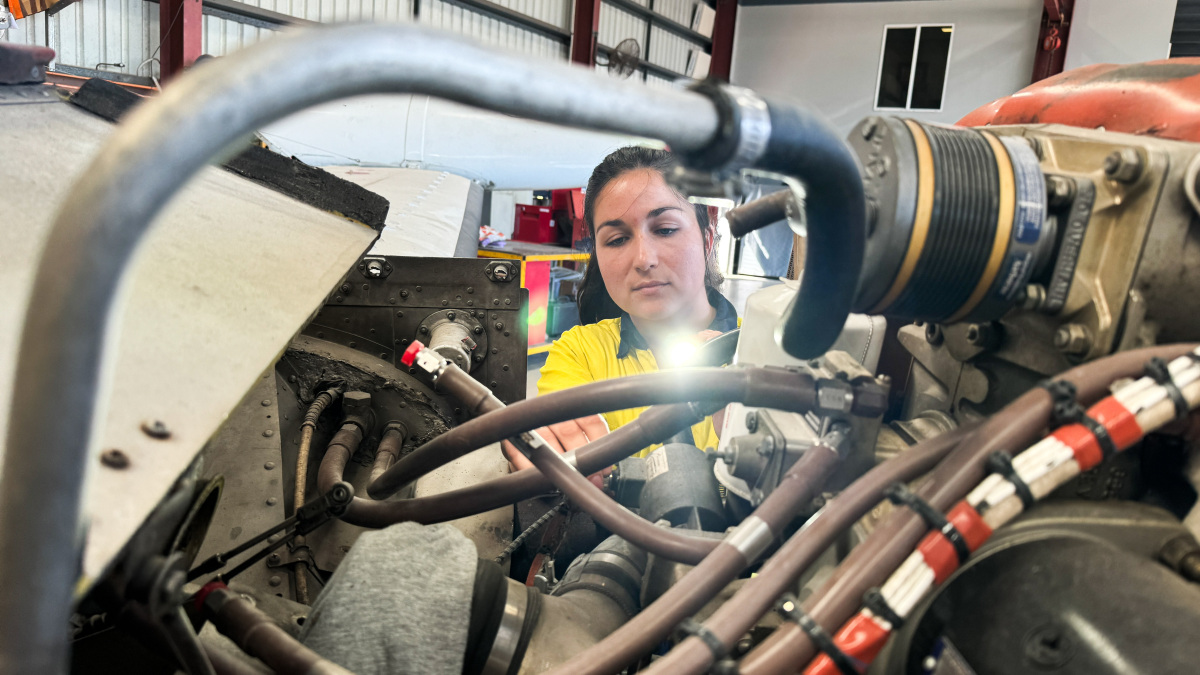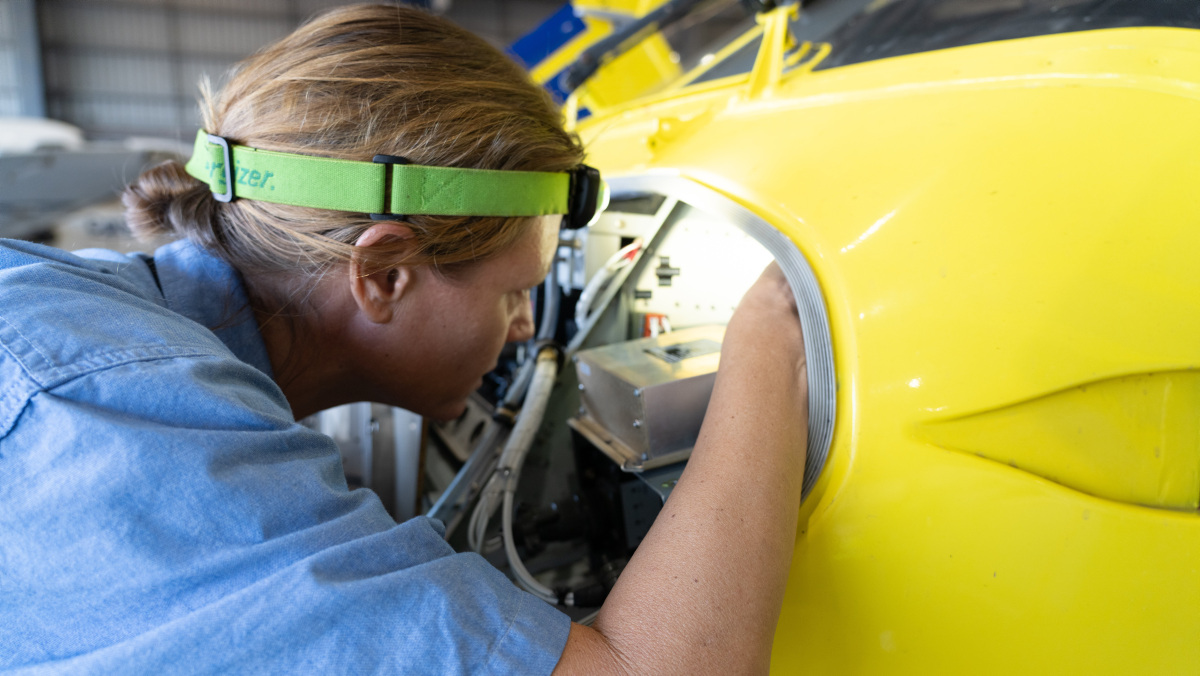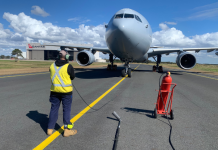Three working women in northern Australia don’t know it, but they are standard bearers to a proud tradition of practical feminism. Amy Kevan, Emily Holden and Eliza Zurawek work on aircraft, as women have done, largely without acknowledgement, for more than 100 years. They speak proudly of the satisfaction of understanding and fixing complex systems, the variety of the job, the support they receive from the men in their working lives and their journey to LAME status.
Licensed aircraft maintenance engineer (LAME) Emily Holden began studying civil engineering at university. ‘But I looked around the lecture room at the 300 other kids and thought, “This looks very competitive”. My future didn’t look very enjoyable,’ she says. ‘I was just going to be another person working on a project – not engineering as I knew it.
‘So I came home, worked with my dad [a LAME] in Katherine and thought this is pretty good.’ When her father mentioned the business was short staffed, she asked for a job – and got it.
Eliza Zurawek, also a LAME, turned to aircraft maintenance and repair after studying something else at tertiary level, which did not inspire her. ‘I was interested in fixing things but I didn’t know how to get in touch, or even that this was a job,’ she says.
‘I was 24 and thought, “If I don’t do it now, I’m never going to do it,” so I walked into a hangar [where she now works] and asked for a job’.
Aircraft maintenance engineer Amy Kevan started in the stores department of an emergency medical service aviation operator. ‘I didn’t know much about aviation but an apprenticeship came about and some of the maintenance engineers pushed me towards it and said I’d be a good applicant,’ she says.
All 3 women agree that they bring a subtly different approach to the job than their male colleagues.
‘Girls seem to bring a different approach to problems,’ Emily says. ‘I think we bring more compassion into the workplace, looking after each other. Males can be very task focused, they can forget about the heat or drinking water. For me, if I’m hot, then I think the whole crew must be too.’

Eliza thinks she is sometimes more deliberate as a woman, not a bad thing in the high-stakes area of aircraft maintenance. ‘I think maybe I go a bit slower, more cautious,’ she says. ‘I didn’t have all the hand skills when I started, but maybe I caught onto the theory a bit quicker.’
Amy suspects women are more open to the principles of human factors. ‘It’s good for human factors to have a different take on things,’ she says.
None of them have a problem working alongside men in an overwhelmingly male environment.
Eliza says it had never crossed her mind. ‘I grew up on a farm, worked in shearing sheds full of men, other jobs full of men. I didn’t realise I was the only female until they said, “We’ve never had a female [aircraft engineer] before.” It’s been really good.’
If you’re interested in fixing stuff, it’s easier than being a car mechanic and it pays better.
Amy says her work background has always been alongside men. ‘I was in mining for 9 years and the female side was a minority.’
Emily says working alongside her father from childhood taught her skills that gave her credibility. ‘That hands-on exposure from a young age helped me in my trade. It sparked the interest of wanting to fix stuff, just being able to use a ratchet screwdriver, knowing “lefty-loosey, righty-tighty”. Watching work experience kids now who don’t know that, I realise what an advantage I had.’
She says women should give aviation a go and not be scared of a male dominated environment. ‘If you’re interested in fixing stuff, it’s easier than being a car mechanic and it pays better.’
All take pride in their chosen career.
Emily enthuses about the joy of ‘solving a riddle’ and ‘that lightbulb moment’.
‘The best part is when you finish your six-week block of theory and come back to work and realise, “That’s what’s going on” in the black boxes,’ she says.
Avionics specialist Eliza enjoys the variety of her working life. ‘The best thing about the job is that no 2 days are the same. It’s a bit more exciting knowing that things will show up, defects will pop up,’ she says.
Amy has appreciated the flexibility her career has given her. ‘In my situation, I stopped to have a child,’ she says. ‘I’m in my 7th year of study, with 18 months off to have a child. I’m still chipping away, trying to find study time with a two-and-a-half year old.
‘I’m glad I got through 80% of the theory before my son arrived. Now he says, “Mummy works on planes”.’
The best thing about the job is that no 2 days are the same.





